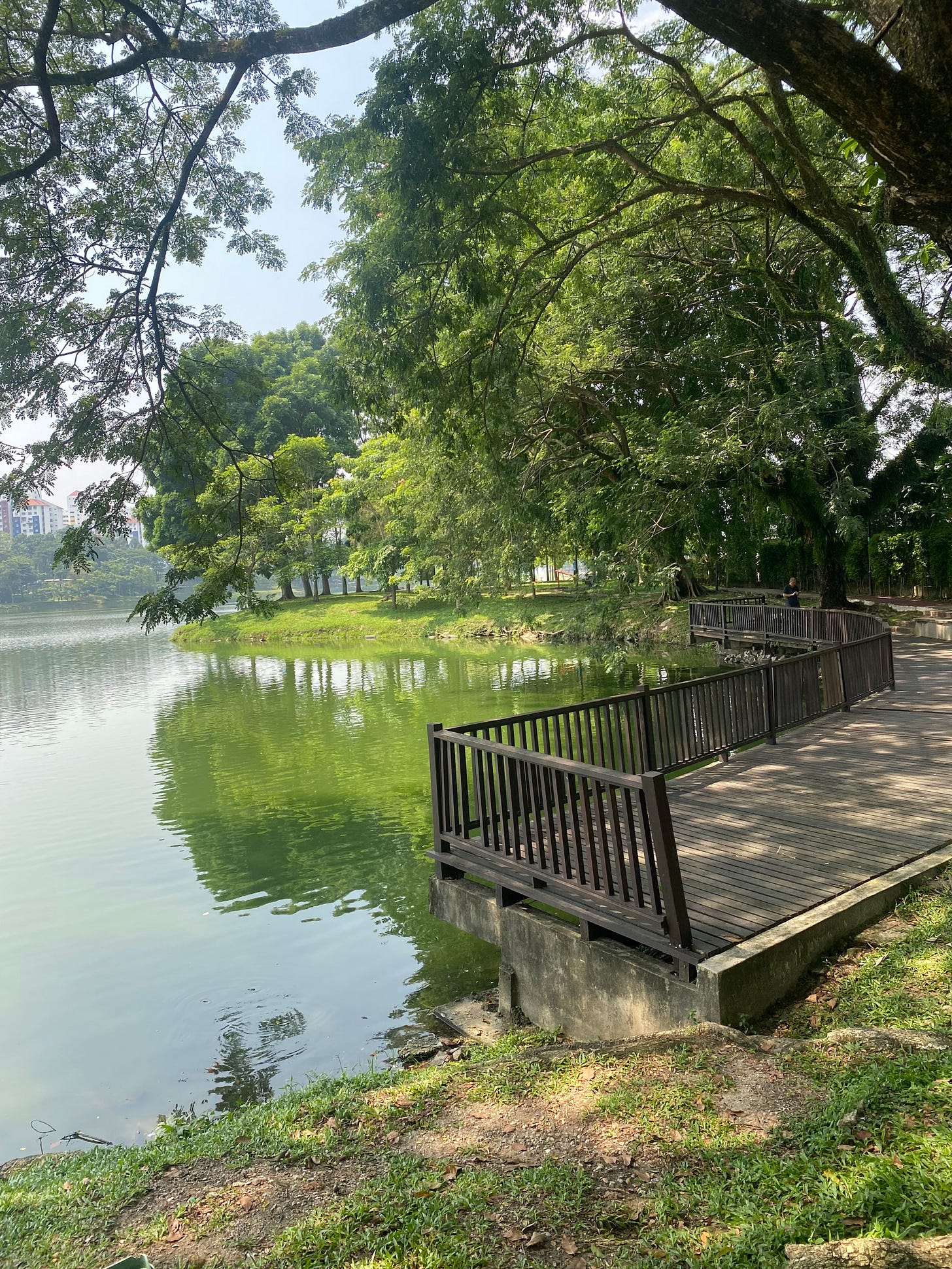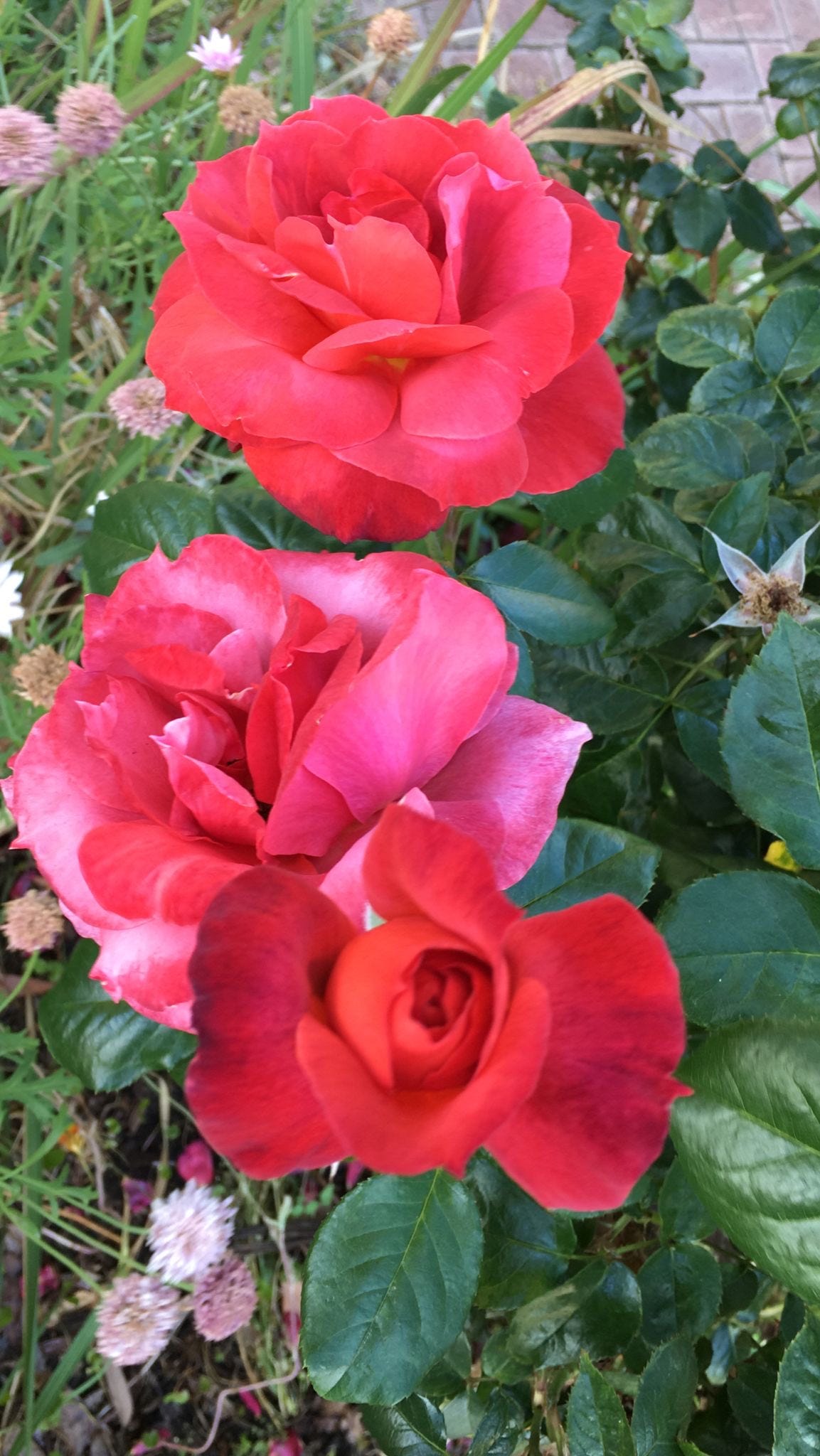“Beautiful young people are accidents of nature, but beautiful old people are works of art.” Eleanor Roosevelt
Ruminating over what to write next, I recall a friend asking why I don’t write about health matters since I have so much interest in them. It certainly is not for want of interest. Shying away from such topics I have however touched on peripheral issues of health like the blue zones lifestyles and diets. Today I came across an article in the news on Dr. Peter Attia and it rekindled the question of whether to write on health matters. Many other health professionals have written plenty on many different topics on health sometimes to the point of information overload. But then again I am grateful for so much health and medical literature being made available so freely to all and sundry.
Yes, people are living longer but not necessarily in good health. Not exactly an ideal situation, is it? Living longer in incapacity and ill health is sheer utter misery, to state the obvious. It is not only the loss of one’s independence that makes for an unhappy state but being dependent on others means burdening them and multiplying the misery. Pain has a way of making it felt 24/7 and guts anyone, even the mighty can be brought down to their knees by celiac or Crohn’s disease!
(Incredibly) will you believe the idea that one is responsible for one’s own health is an uncommon one? Surprised? Not me! Amazingly, health is not foremost in many people’s minds and agendas and quite the opposite is true i.e. health is in one’s own hands. The idea that one can diet against disease or adopt preventive measures against ill health is not very popular. Where there is a call to exercise discipline or restraint or to make informed choices for better health, it is not uncommon to find people balking at it. The path of least resistance, that is, to give in to one’s desires no matter what the consequences are, even if undesirable, is just too irresistible. There is a tendency to even feel invincible, that no disease can touch or inflict itself on one’s person. We need to be reminded that disease is a process and does not occur overnight. As the song (The Sound of Silence) goes “silence like a cancer grows …” testifies to the insidious, silent nature of the disease process. It is also no respecter of people or age. Disease does not just strike the old but people of all ages including infants. The actual manifestation of disease may occur one to two decades later when it then catches people’s attention, surprisingly, by surprise! And should it be? Do you not wonder why?
I am often told our genes control us, suggesting our genes are our destiny and we are, but sitting ducks for good health or disease. Since we are bestowed good or bad genes (not of our choice), or more of some than others, there exists the inclination to think there is not much we can do to change our health fates. Wrong! I simply have to disagree, and vehemently, for that matter. Epigenetics, which is not a new idea at all, has been on the science and health scenes for many long decades. It alludes to how good health and lifestyle practices can promote good health by turning on good genes and turning off bad genes. Gene expression is influenced and affected by one’s lifestyle. The effects of a good lifestyle are not just felt in one’s lifetime but are carried forth into one’s offspring through the inheriting of newly encoded good genes which is remarkable. The idea that one can affect one’s successor’s health is simply astounding. One possesses the ability to change the future health of one’s down line.
So let’s talk about what a good lifestyle involves. One of its many components is diet. What constitutes a good diet? Do you realize that what is excluded from one’s diet is as important as what is included? In the equivalent of photographic language what is excluded in a (good) composition is as important as what is included in it. Despite the current emphasis on plant-based diets and their goodness, there are many other good diets of other kinds without a one-size-fits-all or a template cookie-cutter good diet. For one, everyone’s physiology and makeup are different which means that one’s requirements may differ from someone else’s, for instance, some people may thrive on carbohydrates while others thrive on protein. Older bodies also do well with a bit of protein in the diet for the maintaining and repairing of tissues and to reduce or prevent muscle wasting. One can opt for white meat or seafood if reducing red meat intake. Our bodies will tell us if what we are consuming is ideal, we just need to listen to its signals (as in listening to the body). As more people are going plant-based nowadays primarily to avoid consuming meat, bear in mind even plant-based diets require careful selection and thought to avoid excessive oxalates (that contribute to the formation of stones), lectins (that may cause problems of digestion), phytic acid, and other anti-nutrients that prevent the body from absorbing vitamins and minerals. Blanching vegetables and discarding the water can reduce some amount of toxicity. In any case, it is good to consume some raw vegetables such as a salad for their live enzymes apart from their fiber and vitamins and minerals. Are we experiencing wellness or are we having bloating, diarrhea, cramping, gas, and the like? Are we having intolerance issues? Initially, it may be a little confounding, to have this conversation with your body but if you persist and begin to understand its language, you can learn to be in tune with it. You will know when you feel good and when you do not. What we wish to exclude from our diet is the toxic stuff such as sugars (check out Dr. Robert Lustiq, one of the leading experts on sugar as a poison), refined carbohydrates, inflammatory polyunsaturated cooking oils, pesticides, herbicides, fungicides, bacteria, fungi (except edible ones) or mold, parasites, chemical residues in our water such as fluoride and chlorine so filter your potable water, heavy metals, processed foods, etc. Be that as it may, a simple dichotomy of distinguishing between toxic and non-toxic foods does not eliminate all health issues. People with celiac disease or intolerance issues will still be troubled by what, to many, are ‘healthy foods’. Celiac patients are gluten intolerant and need to avoid it. Intolerance issues may differ among people with different people being intolerant to different types of foods. Food allergies (different from food intolerance) can lead to autoimmune issues. Life is certainly no fun when the body is unwell. Well-being leads to happiness. In a nutshell, eating the rainbow and eating in moderation take a lot of angst out of trying to figure out what and how much to eat. Rotating your foods contributes to consuming a variety instead of sticking to the same cache of food.
Prior hereto, some 5-6 years ago, I followed, quite religiously, a gluten-free diet for a significant number of years and experienced enormous health such as vibrancy, high energy, better weight, skin, and sleep. I did an article on it previously and said it was however a ‘lonely’ journey as many who did not subscribe to it tried to convince me I was ‘losing out’ on the joys of eating and so, of life. I appreciated their good intentions but it was sometimes uphill combating the many efforts to ‘derail’ me. To be perfectly honest, it was a period when my health was at one of its best moments. I was quite devoid of the ‘expected’ age-related aches and pains despite pushing my body to its physical limits. I was not inflamed. Coupled with intermittent fasting, I lost weight and kept it down. To me, these are all good outcomes, well worth the ‘sacrifices’ made.
The other time when I experienced great health was in my early 30’s. Influenced by the raw juices’ health concept before it morphed into a sizeable recognized movement, I faithfully and dutifully juiced for the whole family. It was laborious, to say the least (all that buying, washing, cutting, and juicing) but the health currency and returns were manifold and invaluable. Being young helped. The drive and energy themselves helped maintain the routine. Eventually, as my life got busier, I substituted the natural greens for green powders. Although to me, it is second best, it is nevertheless, still good. It buys me time for other things to do.
Over the years since then, in addition to the green powder consumption, I supplemented with minerals, vitamins, omega-3 oils, and other vital supplements to support vision and energy production to name a few. Views do exist that natural food is sufficient to provide our entire mineral and vitamin needs and supplementation is unnecessary. My question to that is, how good is one’s diet? How balanced is it? Is it pesticide-free if not organic? How much of the food consumed is natural and how much of it is processed? What type of oil is used for cooking? Many cooking edible oils with low heat points are pro-inflammatory and turn rancid or they break down under high heat. As it stands their processing had already subjected them to very high heat and the use of chemical solvents to ‘purify’ or ‘refine’ them had also subjected them and contributed to their diminishing health profile. Is the natural produce grown in depleted or soils rich in minerals? Despite my love of cooking, I will be the first to admit my diet isn’t always optimal. It may generally be better than many people’s but I still enjoy street food and eating out on occasion. How nutritionally balanced is street food? How complete is its nutritional profile? What oils are used in its cooking? Your guess is as good as mine! These questions underscore my reasons for supplementing. As an example, it may come as a surprise that many people are vitamin D deficient even in the sunshine belts near the equator. Considering how essential vitamin D is to overall health by numerous recent studies, it makes sense for those in need to supplement.
Diet is only one component or facet of healthy living. Exercising, and embracing sunshine and fresh air are two more facets of the essential others. I choose to do my housekeeping instead of attending a gym or walking. This has more to do with maximizing my time use as I view housekeeping as an in-built exercise thus killing two birds with one stone, i.e. having a work-out and a clean house. Living in a 3-storey house means lots of stair climbing! To keep supple I instead do stretching exercises and so far, this routine has worked out fairly well. As for keeping pain-free, wisdom dictates not pushing the body beyond its physical capabilities and allowing it to rest and recover on alternate days. I can’t say I am faithful to the regime to the core but generally, that is the routine. An older body can do with a little more care and tenderness so hard physical labor needs temperance with in-between rests and knowing when not to push it beyond its limits. If you prefer to walk, you can walk anywhere, even in a shopping mall. It is preferable to being sedentary. You can walk your dog, or walk instead of driving to places.
So really, is going into the 70s as fearful as once thought? Or is it just a number optimistically put? It is not the same for everyone depending on each person’s health status. How one goes forward, in great or poor health or any state in between, pretty much depends on one’s attitudes and endeavors in keeping in good shape and health. There is the necessary investment in researching health articles and putting into practice relevant applicable health advice before one can reap their benefits. Just as the disease is a process and takes years to develop, likewise it is with developing good health. Adherence to a week’s faithful exercise routine isn’t going to make one fit, and neither is eating more greens for a week. It is the faithful adherence to healthful practices over a long duration that yields enduring results. Starting early in life is an advantage. It is never too early to start a health regime, neither is it too late. As the adage goes, it is better late than never. Today, there are a sizable number of people with good health regimens who are proving that 70 is the new 60.
Next is the zzzzzzs required for keeping us stable overall. Many will recall groggy days following bad sleep even if it is only a night’s poor sleep. It is rather telling how sleep deprivation can so badly affect our physical and mental performances. Our hormones are very much at play and can become haywire when we are sleep-deprived. Our hormone interplay is delicate and is perfectly synchronized when our bodies are in homeostasis. And the reverse can throw it into chaos and stressful states. When stressed, our adrenals pump out cortisol and adrenaline which causes our liver to convert glycogen into and to release glucose. Our body is under the impression we need the extra energy to exert ourselves such as the need to run to safety. While there are no tigers pursuing us in our concrete jungle unless one escapes from the zoo, our brains and bodies are still hard-wired to act as if we are running furiously away from danger when extreme stress strikes us. When continuously stressed, this process repeats itself. Our adrenals become increasingly fatigued and shot. The repeated release of glucose (aka sugar) contributes to weight gain and high insulin. This is a mere pinhole view and a small slice of the interplay of our bodily hormones and functions. Our bodies dance to the myriad voices and signals they hear and do a marvelous job of coordinating everything when our health is in good order and balanced. It is then imperative we make our bodies a venue conducive to good health by nourishing them and treating them kindly. When you have had adequate sleep, your body will inform you how good it feels. No blahs, no fogginess, no lack of energy, less aches and pains. Some tips for good sleep are to be physically tired, avoid blue lights in the night (red lights do not disturb sleep), keep the bedroom cool and quiet, be bug-free, keep the stress down, eat lightly for dinner, do not exercise vigorously before bedtime, and settle down to a sleep-wake routine by keeping the same daily sleep-wake cycle. Getting some daylight in the eyes in the early morning helps set the circadian rhythms for the release of melatonin, the sleep hormone, at night. And, good luck! John Denver must have known something good about sunshine and vitamin D when he sang his song ‘Sunshine on My Shoulder’ because it “almost always makes me high.”
Talking about lessening aches and pains, red light therapy is steadily gaining recognition and popularity as a healing modality although it has been in use for a rather long time. A simple red light lamp is a good start where affordability is an issue. For the less budget-conscious, there are many more sophisticated devices to choose from. As more research gets underway, some of the benefits touted are improved energy, sleep, vision, skin, wound healing, joint comfort, and brain health. Red light is capable of penetrating the dermis to bring about healing. Included within the red light spectrum is infrared red light (near, mid, and far infrared) which has been popularly used for a fairly lengthy period with encouraging feedback on their benefits.
Aging or aging gracefully (anti-aging?) is as much hype as it is real. It is not so much trying to be forever young as it is about remaining functional and in general good health sans disease, particularly chronic disease. One is generally in good health when energy levels are reasonably high. Nothing is more dismal or ‘depressing’ than being lethargic or fatigued to the point of being unable to function. Mitochondrial health ensures good energy production and the ability to function and heal. Mitochondria are our energy furnaces and when fed the essential nutrients, vitamins, and minerals as in a well-balanced diet, are capable of synthesizing good levels of energy (‘ATP’ an acronym for adenosine triphosphate, our energy currency at the cellular level). Life is ‘fun’ when one is full of vitality and energized. Vibrancy allows us to view life through rose-tinted glasses.
The Blue Zones do provide us with samples of good lifestyles to emulate. This is where you will find most of the older ‘club members’. The recipe for good health and happiness has not changed from our grandparents’ time. Tight family support (think the extended family) plus socializing with neighbors and friends bring much camaraderie and social and mental support, especially in times of need, and help ward off loneliness and fears. Such stabilizing factors are incredible immune boosters preventing easy succumbing to illnesses and mental let downs too. It may be good to return to similar models of lifestyle to combat the modern scourge of loneliness particularly among the friendless and marginalized segment of people. Many long-living people when asked about what might be the reason for living long happy lives attribute it to being happy. I bet you your happy hormones are happy listening to this.
Last but not least, remember we are spiritual beings. Possessing a spirit of gratitude and being thankful for all the good bestowed on us will humbly remind us of the blessings in our lives. These can be in the guise of intangibles and not necessarily in the form of materialistic things such as money or chattels. Having loving relationships with family and friends counts for a lot. The sense of security provided by them provides peace and happiness. Worry is the antithesis of peace and happiness; prolonged extreme worry through complex physiological processes can induce physical diseases (somatic diseases) and mental illnesses. Praying lessens stress and helps calm the mind. Our spiritual connection to God will certainly bring spiritual relief and peace, we may not always know how but knowing our prayers have been heard by a higher power helps relieve us of carrying our burdens by ourselves. Kind of reminds me of “The Pilgrim’s Progress” by John Bunyan! Haven’t read it yet? Go get a copy of the book! Having a sense of purpose and deriving meaning from it enriches one’s life experience and miraculously prolongs it. It brings joy to be useful and that is a reward unto itself. View it as some sort of anti-depressant!
So as we march on envisioning a healthy future, remember the future is grounded in the present. What you do today will determine if the future you will be in good stead. Be happy, take your walks if that is your ‘thing’, eat right, supplement, sleep tight, relax, and stop being uptight. These are simple things to do. The question is: Will you? Doesn’t matter which club is yours - 50s, 60s, 70s or 80s! Just love your body, it is the only one you have! This calls for a celebration!! Stop to smell the roses, it is heart friendly.
And since Chinese New Year is just around the corner, party on but eat lightly. Remember calorie restriction prolongs life. Enjoy family ties and family time and reconnect with friends returning for the occasion. Remember life is very much more than eating! Live and love well!
“Aging is just another word for living.” Cindy Joseph
NB: For in-depth information on the various protocols (e.g. going gluten-free, sugar as a toxin, intermittent fasting), please look up the Internet or publications on them. Not all protocols work for everybody but they generally contribute to well-being. Going forward, it may be interesting to delve into the different protocols, what is involved, and what benefits they may offer.
Disclaimer: This is not health advice. Please check out for further information on any of the protocols mentioned.
Photos of the beautiful fruits, flowers, and vegetables were shot at Philip’s organic edible garden, which he tends to himself. Philip puts enormous effort into gardening spending many hours lovingly tending to his plants and generously donates surpluses to those who need them. A note of thanks goes to Philip for the use of his photos.












